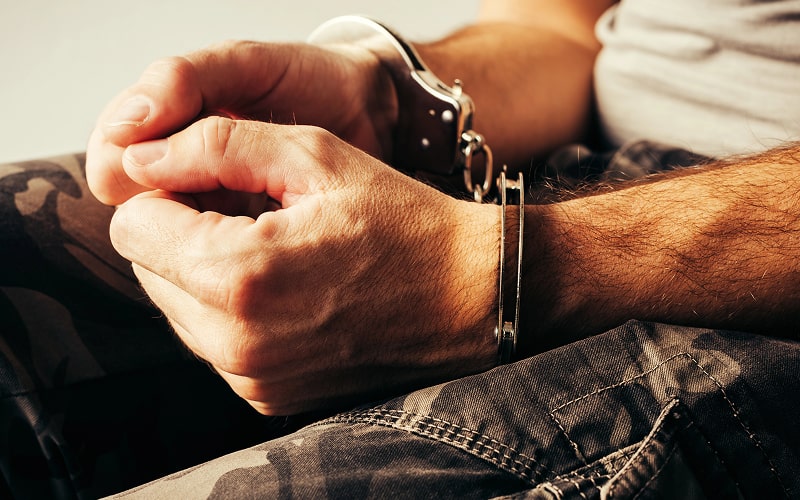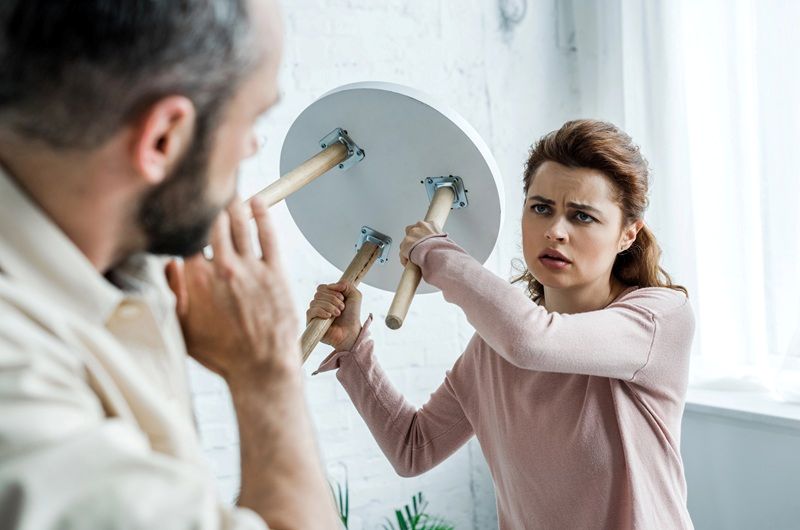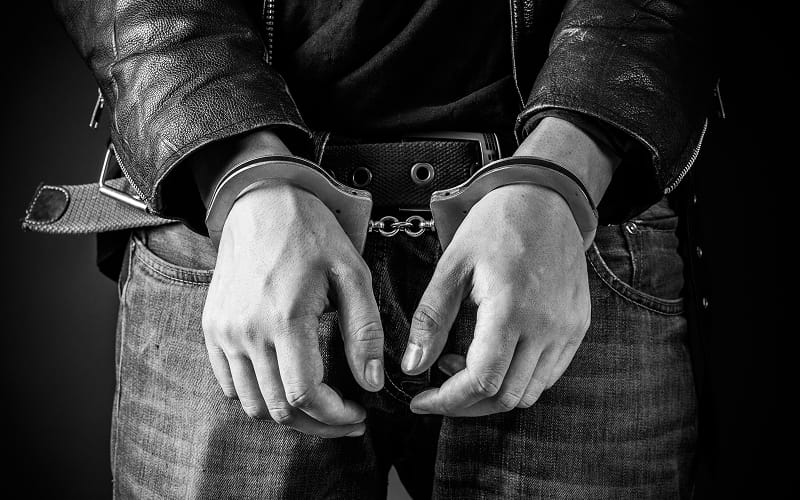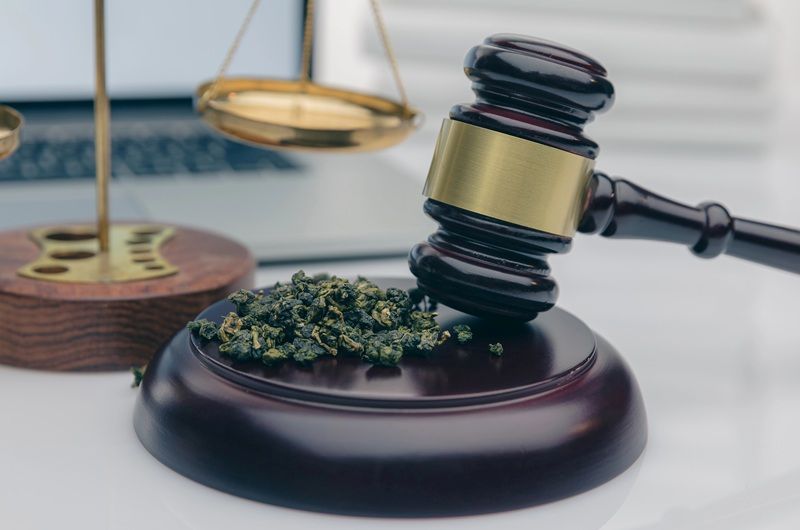Being arrested for domestic assault in Fairfax County can feel like your entire world has turned upside down. The legal system moves quickly, and every step you take from the moment of arrest can impact your future. While the experience can be stressful, understanding what happens next can provide a sense of control.
Virginia has strict domestic violence laws, and the legal process following an arrest can be complex. From the moment you are taken into custody to the final resolution of your case, each stage has specific procedures and potential outcomes. Having the right legal knowledge and representation can make a significant difference in how your case unfolds.
This article outlines what happens after an arrest for domestic assault in Virginia. It covers the immediate aftermath, arraignment and bail, pre-trial proceedings, the trial process, and post-trial options.

Immediate Aftermath Of The Arrest
An arrest for domestic assault begins a legal process that moves quickly. Law enforcement takes these cases seriously, often making an arrest if there is any indication of violence. Once taken into custody, you may feel uncertain about what happens next.
Arrest Procedure
When officers respond to a domestic disturbance, they evaluate the situation. If they believe there is probable cause to suspect domestic assault, they will make an arrest. Even if the alleged victim does not want to press charges, the police can still proceed with the arrest.
During this time, it is crucial to remember your rights. You have the right to remain silent and to request an attorney. Anything you say to the officers can be used against you, so it is best to stay calm and avoid unnecessary conversations.
Initial Detention & Processing
After the arrest, you will be taken to the local jail for processing. This includes fingerprinting, taking a mugshot, and recording personal details. You may also be asked basic questions about your identity and health conditions.
Once processed, you will either remain in custody or be released on bail. This decision depends on several factors, including the seriousness of the charges and your criminal history. If bail is not immediately set, you will remain in jail until your arraignment.
Issuance Of Protective Orders
In most domestic assault cases, a magistrate will issue an emergency protective order (EPO). This order prohibits any contact with the alleged victim for a set period. Violating this order can result in additional charges and penalties.
Protective orders can restrict access to your home, children, and even possessions. While frustrating, it is essential to follow the order precisely. Any violation can severely impact your case and future legal proceedings.
Understanding the immediate aftermath of an arrest is the first step in preparing your defense. Next is about what happens during the arraignment and bail hearing.
Arraignment & Bail Hearing
After being arrested, the first formal court appearance is the arraignment. This is a critical step where the judge informs you of your charges and determines the conditions of your release. Knowing what to expect can help you make informed decisions.
Understanding Arraignment
At the arraignment, you will stand before a judge, who will officially read the charges against you. You will also be informed of your rights, including the right to an attorney. This is also the moment when you enter a plea: guilty, not guilty, or no contest.
If you plead guilty, the case may proceed directly to sentencing. A not-guilty plea means the case will move forward to trial. Your attorney may advise you on the best plea option based on the circumstances of your case.
Bail Considerations
After the charges are read, the judge will determine whether you qualify for bail. Factors such as prior criminal history, the severity of the alleged offense, and potential flight risk are considered. If granted bail, you may need to pay a set amount before being released.
Some cases may result in a “no bond” status, meaning you must remain in jail until further court hearings. If bail is denied or set too high, your attorney can file a motion for reconsideration. Securing bail allows you to continue your daily responsibilities while preparing for your defense.
With arraignment and bail set, the next step is pre-trial proceedings. This phase involves gathering evidence and exploring legal options.
Pre-Trial Proceedings
The pre-trial phase is when the prosecution and defense prepare their cases. This stage involves gathering evidence, negotiating potential plea deals, and filing legal motions. How this phase unfolds can significantly impact the trial’s outcome.
Discovery Process
During discovery, both the prosecution and defense exchange evidence. This can include police reports, witness statements, surveillance footage, and forensic findings. The goal is to ensure both sides have access to all relevant information.
Your attorney will carefully review all evidence to identify weaknesses in the prosecution’s case. Any inconsistencies or procedural errors can be used in your defense. A thorough examination can often lead to dismissed charges or reduced penalties.
Plea Bargaining
In some cases, the prosecution may offer a plea deal. This means pleading guilty to a lesser charge in exchange for a lighter sentence. While plea bargains can be beneficial, they are not always the best option.
Your attorney will negotiate with the prosecution to secure the best possible terms. If the deal is unfair, rejecting it may be the better strategy. Every decision in this phase should be made with careful consideration of long-term consequences.
Pre-Trial Motions
Pre-trial motions help shape how the trial proceeds. Defense attorneys may file motions to suppress evidence, dismiss charges, or request specific conditions for the trial. These legal maneuvers can be critical in strengthening your defense.
For example, if law enforcement violated your rights during the arrest, your attorney may seek to exclude certain evidence. The success of these motions can significantly influence the direction of the case.
With the pre-trial phase completed, the next step is the trial itself. This is where your defense strategy is fully tested in court.
The Trial Process
The trial is the stage where both sides present their arguments. The prosecution must prove guilt beyond a reasonable doubt, while the defense works to challenge their claims.
If the case goes to trial, the first step is jury selection. Both the defense and prosecution have a role in choosing impartial jurors. The goal is to form a fair panel capable of rendering an unbiased verdict.
Attorneys can dismiss jurors who show signs of bias. Careful selection ensures that your case is heard by individuals willing to consider all evidence fairly. A well-balanced jury increases the likelihood of a just outcome.
Presentation Of Evidence
The prosecution presents its case first, offering evidence and calling witnesses. The defense then cross-examines each witness to challenge inconsistencies. This back-and-forth exchange is the foundation of any trial.
The defense will also present its own witnesses and evidence. Building reasonable doubt is the key to securing an acquittal. A strong defense can weaken the prosecution’s claims and shift the trial in your favor.
Verdict & Sentencing
After closing arguments, the jury deliberates to reach a verdict. If found not guilty, the case is dismissed, and you are free to move forward. A guilty verdict leads to sentencing, where penalties are determined.
Sentences can include fines, probation, or jail time. The judge considers various factors, including prior convictions and the severity of the case. If convicted, post-trial options may still be available.
Next, explore what happens after the trial, including appeal options.
Post-Trial Options
A trial’s conclusion doesn’t necessarily mean the case is over. If convicted, there are legal avenues to challenge the outcome. Understanding post-trial options can provide hope for a more favorable resolution.
Appeals Process
A conviction can be appealed if there were legal errors during the trial. Appeals challenge procedural mistakes, improper rulings, or constitutional violations. The goal is to have the conviction overturned or secure a new trial.
The appeals process is not a retrial but a review of the case by a higher court. If successful, the appellate court may reverse the conviction or order a new hearing. Your attorney can assess whether you have grounds for an appeal.
Expungement Possibilities
Expungement removes certain arrests or charges from your criminal record. In Virginia, domestic assault convictions are generally not eligible for expungement. However, if the case was dismissed or resulted in an acquittal, clearing your record may be possible.
A clean record can improve job prospects and personal opportunities. Your attorney can determine whether you qualify and guide you through the process. Expungement provides a chance for a fresh start after a legal battle.
Understanding post-trial options ensures you know all possible paths forward.
Fairfax County Criminal Attorneys: Your Trusted Defense Team

When facing domestic assault charges, having a strong legal team is essential. Fairfax County Criminal Attorneys provides dedicated defense for individuals in Fairfax County and beyond. Our team is committed to protecting your rights and fighting for the best possible outcome.
Comprehensive Legal Representation
A well-prepared defense can challenge witness statements, forensic evidence, and procedural errors. Our attorneys tailor defense strategies to each client’s situation. Every case is handled with careful attention to detail.
Client-Centered Approach
Our firm prioritizes clear communication and personalized legal guidance. We understand how stressful a criminal charge can be and support clients through every step. Our goal is to provide peace of mind while aggressively defending your case.
With years of experience in Virginia’s legal system, Fairfax County Criminal Attorneys has a proven track record of success. If you’re facing a domestic assault charge, contact us and we will help you fight back.
Being arrested for domestic assault in Virginia is a serious legal matter. From the moment of arrest to trial and beyond, understanding the legal process is essential. Knowing your rights and working with an experienced attorney can make a significant difference.
Fairfax County Criminal Attorneys provides dedicated defense to individuals facing domestic assault charges. Our strategic approach ensures clients receive the strongest representation possible.




